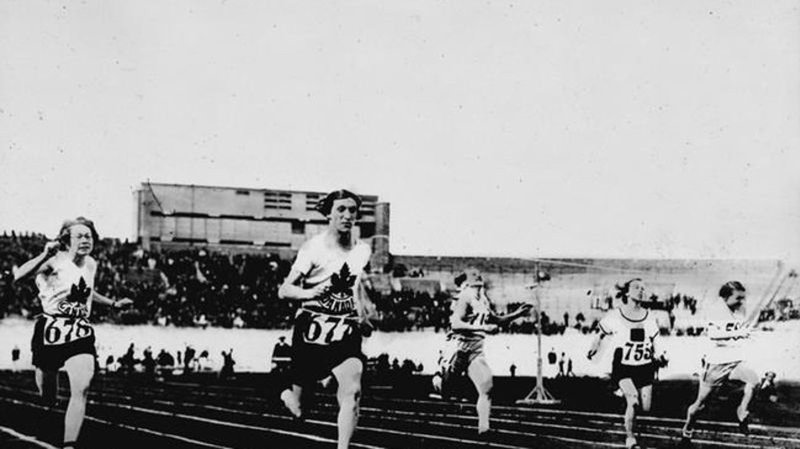
Canada’s Bobbie Rosenfeld led the way — in almost every sport she attempted
Bobbie Rosenfeld was a trailblazer and champion, willing and able to conquer a variety of sports.
A member of Canada’s first Olympic women’s track team dubbed “the Matchless Six” — Rosenfeld, Florence Bell, Ethel Catherwood, Myrtle Cook, Ethel Smith and Jean Thompson — Rosenfeld won a gold medal in the 4×100 relay and silver in the 100 metres (Canadian team officials swore she actually edged American Betty Robinson to win the 100) at the 1928 Games in Amsterdam — the first time women were allowed in Olympic athletics.
But she also excelled at everything from baseball, basketball and hockey to lacrosse, softball and tennis. Voted CP’s female athlete of the half-century in 1959, Rosenfeld’s name graces CP’s female athlete of the year award.
Tennis star Leylah Fernandez won the 2021 Bobbie Rosenfeld Award on Tuesday.
